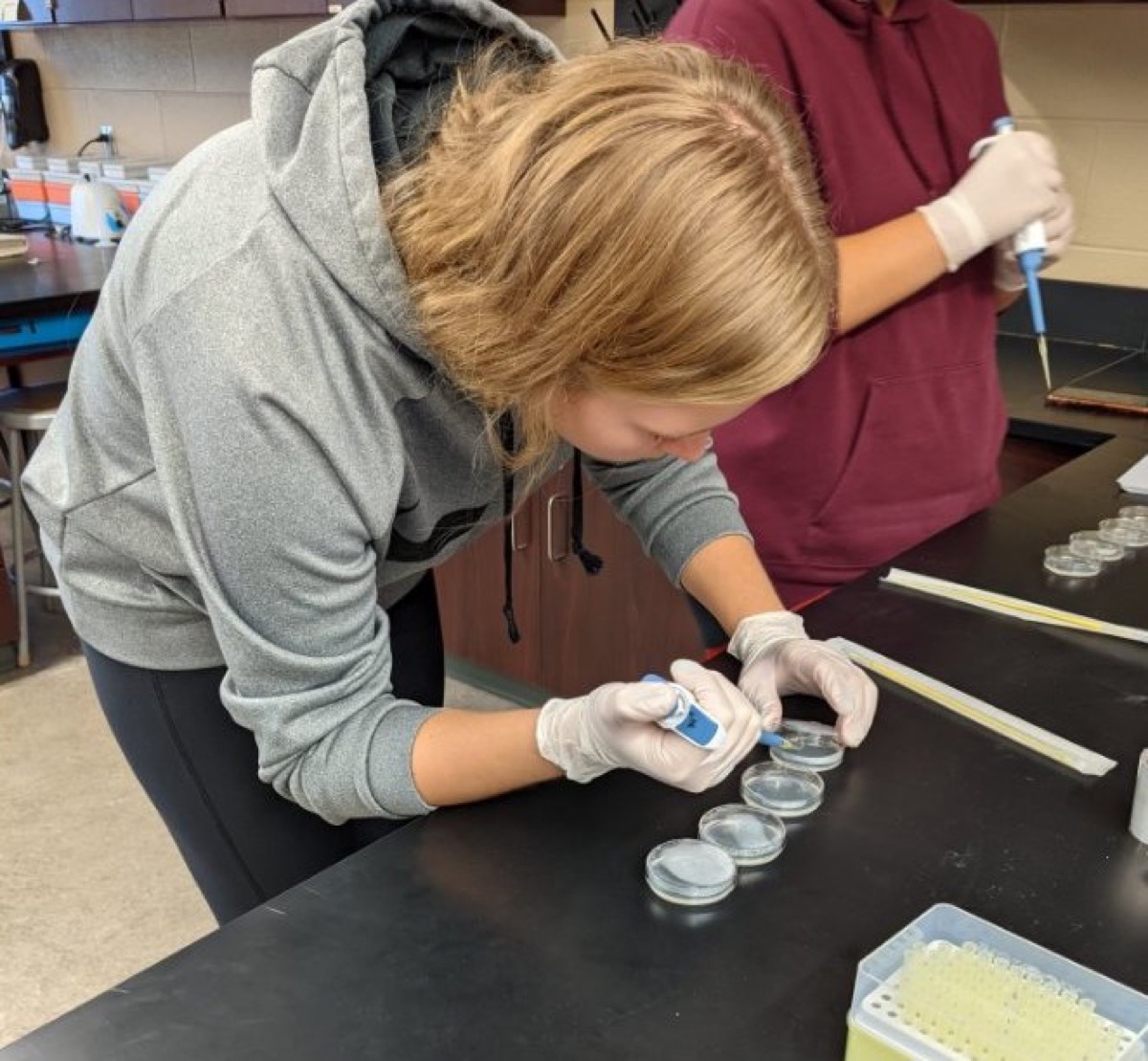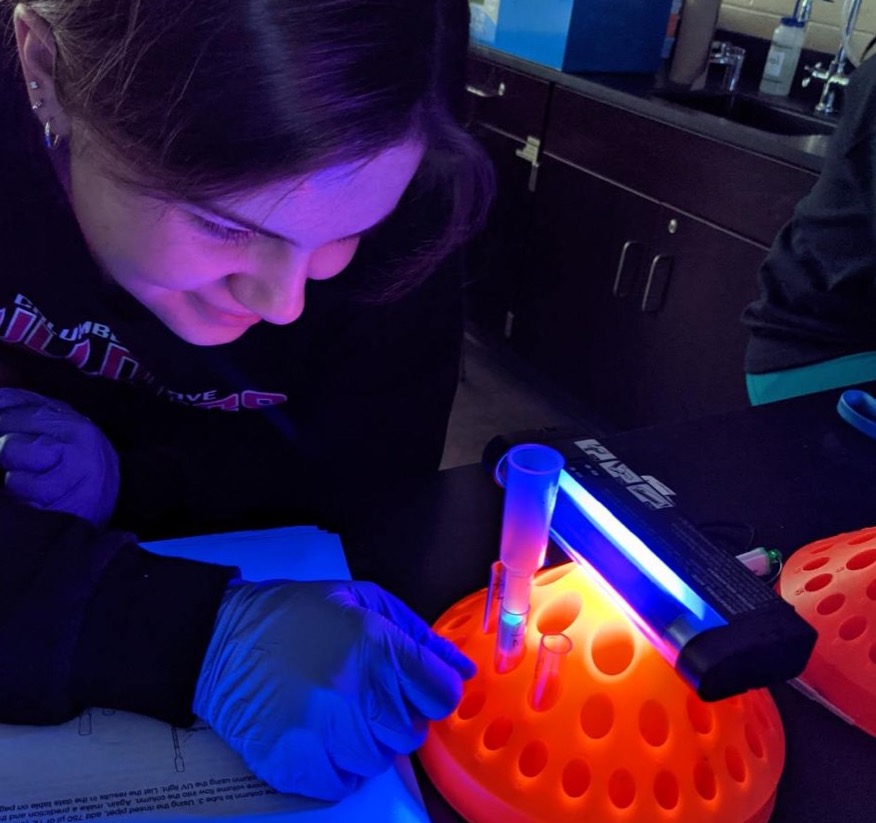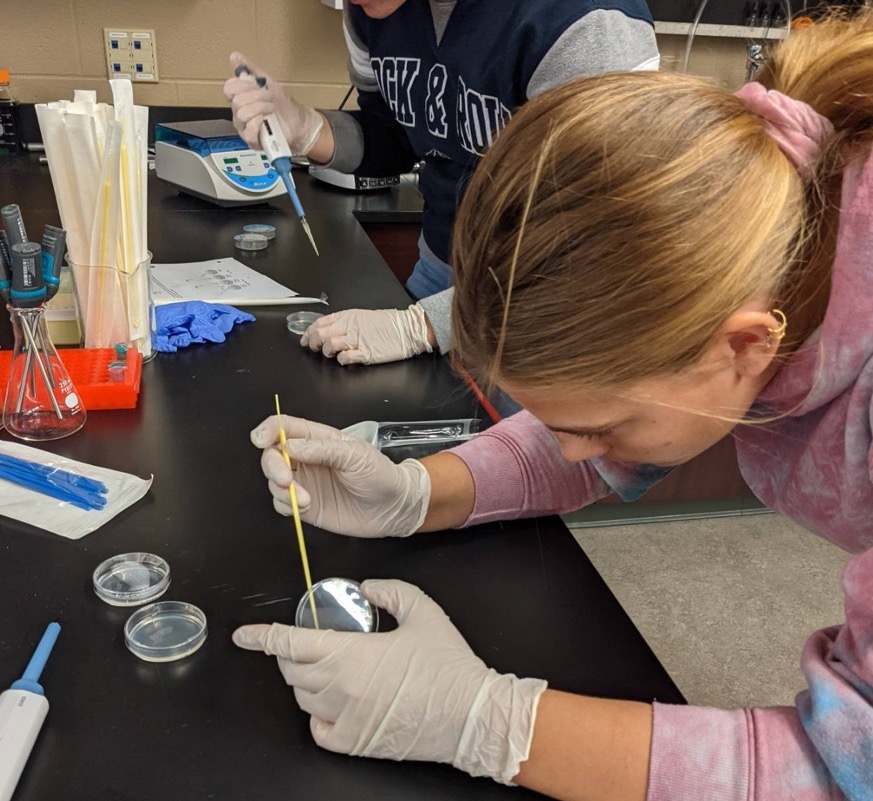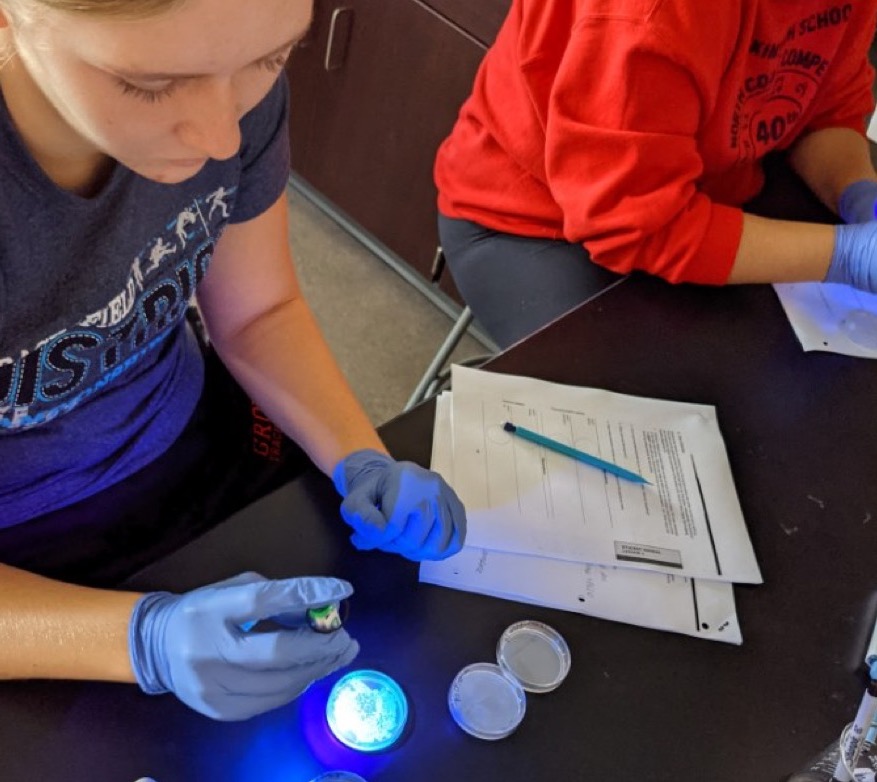Dave Hassan teaches at Columbus Grove High School. He attended the Feed the World summer workshop held at London High School this past summer, where he did the BioRad pGlo Bacterial Transformation lab. He used this activity in his classroom this fall.


“My Biomedical Science class, a very small group of “hyper-interested” students, loved this lab,” Hassan said. “We started with a lesson on the development of insulin as a medical treatment for diabetes. We’ve discussed this topic before, but this time they looked specifically at how it was discovered that dysfunctional pancreatic cells lead to diabetes and different methods of insulin therapy used to treat this condition. Ultimately the discussion turned to “how do we get lifesaving insulin?” This is where we discussed the idea of using bacteria to produce the protein (insulin) from human genetics.”
Hassan had taught these students in Biology, so they had previously learned about bacterial transformation, the process by which bacteria can “pickup” genetic information that they find in their environment. He presented several in-depth lessons on the pGLO plasmid, looking at how plasmids are built to introduce specific genes into bacteria to coax them to produce proteins. They used the University of Colorado’s interactive Gene Machine site to further investigate how the pGLO plasmid functions.


“This site was recommended by another participant at the summer workshop. This is one of the great things about the type of workshops you guys offer—teachers have an opportunity to get input from your instructors and other teachers about things they use in their classrooms that actually work! At this point the discussion got pretty interesting as students tossed around ideas on which proteins we may be most interested in “tricking” bacteria into producing,” Hassan said.
Because the Biomedical Science course is an elective, Hassan has a lot of latitude in deciding pacing. “I chose to have the students set up the entire lab instead of me prepping material for them. They were happy to pour agar plates and start cultures of bacteria which I feel is a great opportunity for them. After looking at the BioRad kit manual very carefully I coached them through the transformation process. They were excited to see the evidence of the work that they had put in when they shined UV lights at the bacteria that were growing and the transformed bacteria glowed back at them!”
Hassan’s class considered the different results they were seeing and the students demonstrated a good understanding of the transformation process. “The results that we got were amazing, and though I worried (and had read) that some small missteps in the procedure could lead to limited results, we did not have that problem. All of my students transformed lots of bacteria—so much so that counting colonies was difficult and it was decided that the lab should become an annual activity with each new year being challenged to “out-transform” the previous class.”
Hassan plans to broaden their study. “The students enjoyed the lab so well that we decided to buy the extensions that BioRad offers for this kit to purify the green fluorescent protein produced by the bacteria. We have been discussing the chemical nature of this protein in class and are going to attempt to look at our results by performing electrophoresis with their samples to confirm what they have learned. These activities are not part of the transformation activity we did in the workshop but my students enjoyed the activity well enough to warrant taking a deeper dive.”
Hassan feels that this was a “very effective activity! My students have been able to apply previously-learned information along with new material to develop an understanding of something that just a short time ago they could not have even imagined. I even had one student make the statement that “this stuff is really cool.” She has since expressed interest in majoring in laboratory sciences in college to pursue a career in research.”
Feed the World is all about reaching students with real-world science and helping them to discover new careers available to them. Join us at a workshop and experience these engaging lessons for yourself!